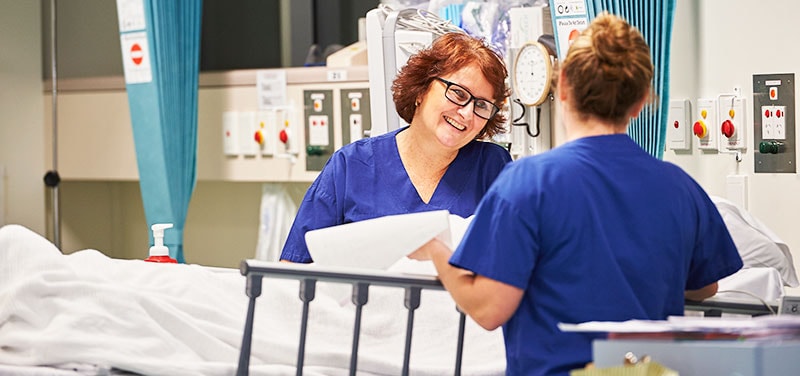- Our services
- Medical and surgical
- Anaesthetics
Anaesthetics

There are three main types of anaesthetic: general, regional and local. The type you receive will depend on the procedure you are having and your anaesthetist’s recommendation.
Anaesthetics are administered prior to many different surgeries, diagnostic procedures, dental work and sometimes during childbirth.
Your anaesthetist will look after your wellbeing before, during and after surgery. Their goal is to keep you completely safe and make you as comfortable as possible.
Our anaesthetics services
We provide the highest standard of anaesthetic care, both during and after surgery.
This care is provided by an anaesthetist, who is a medically qualified doctor who has undergone specialist training.
If you have any concerns about any aspect of your anaesthetic or the process, please discuss these with your anaesthetist. Your anaesthetist and your caregivers are committed to your safety and comfort during your hospital stay. It is normal to feel a little nervous before anaesthesia but be assured that you will be well cared for.
Types of anaesthetics
There are different types of anaesthesia:
General anaesthesia
A general anaesthetic is given intravenously (via a needle), with gas, or both. If you are given a general anaesthetic, you become unconscious and are completely asleep during your procedure.
The anaesthetist is present throughout your procedure and will closely monitor your vital functions keeping you safe. When the procedure is finished you are woken up and then handed over to the care of the recovery room nurses.
Regional anaesthesia
A regional anaesthetic numbs nerves and stops you feeling pain in a specific area, for example a spinal or epidural anaesthetic will numb you from the waist down. Other nerve blocks can be used for arm, hand and leg surgery.
Local anaesthesia
A local anaesthetic is injected into the area which will be operated on, creating numbness. It prevents or relieves pain, but will not put you to sleep. It is often used for outpatient procedures and smaller operations.
Procedural sedation
For some procedures such as colonoscopy, endoscopy and cataract surgery you may receive sedation. You may be awake but feel a bit drowsy, unaware or even fall asleep at times during the procedure. Sedation uses just enough anaesthetic to make the procedure painless and tolerable but allows you to communicate and recover quickly.
Anaesthesia and surgery – what you can expect
Before surgery
Your anaesthetist will see you before your surgery, examine you and assess your general health and medical condition. They will also discuss your pain relief options with you, and answer any questions you may have.
During surgery
Your anaesthetist will administer anaesthesia and associated pain relief. They will monitor your vital functions (heart, lungs, kidneys and brain) during the surgery, keep you warm, and make all the necessary adjustments to keep you safe and well.
After surgery
Your anaesthetist will continue to monitor your condition and arrange intravenous fluids and prescribe analgesic drugs (painkillers) as required. Pain medication may be given intravenously, by injections or using tablets. It may even be a combination of these.
Costs and fee payment options
If you have private health insurance, the costs for your hospital stay and specialist fees may be covered by your health fund, based on your level of cover.
If you don’t have private health insurance, you can access treatment at a St John of God Health Care hospital through our self-funded care option.
When you use your private health insurance, you get benefits that include access to St John of God Health Care private hospital facilities, your choice of specialist, minimal wait times, and with an eligible policy most of your hospital costs can be covered by your private health insurance fund.
You should contact your health insurer to understand your level of cover, and whether your policy is subject to additional fees such as a hospital excess or other ‘out-of-pocket’ expenses. Your health insurer will also be able to assist in understanding if you will have doctor, radiology and pathology out-of-pocket costs.
Patients who don’t have private health insurance can choose to access St John of God Health Care private hospital services and treatments by paying fees themselves.
By accessing our self-funded care option, you’ll be able to avoid wait times and have your surgery or treatment with your choice of specialist at a St John of God Health Care private hospital.
- Learn more and enquire about the self-funded care option.
- Call 1300 940 199 to get a quote for self-funded treatment.
If you have received an invoice for an expense associated with treatment from a St John of God Health Care service you can pay your bill online.
You may be interested in...
Where we provide this service...
